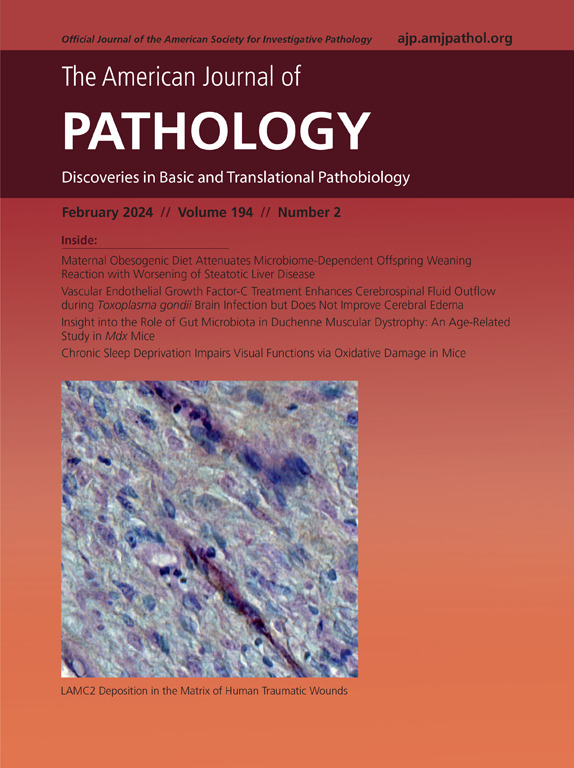Development of CAR-T Therapies and Personalized Vaccines for the Treatment of Cholangiocarcinoma
IF 4.7
2区 医学
Q1 PATHOLOGY
引用次数: 0
Abstract
Cholangiocarcinoma (CCA) is a highly fatal malignancy with an increasing prevalence, a high mortality rate, poor overall survival, and limited responsiveness to conventional chemoradiotherapy. Targeted therapies addressing specific gene mutations have expanded treatment options for some patient populations. The introduction of chimeric antigen receptor–modified T-cell (CAR-T) immunotherapy and personalized vaccines have opened up a new avenue for managing various cancers. Considerable efforts have been dedicated to preclinical research and ongoing clinical trials of immunotherapeutic approaches including CAR-T therapy, vaccines, and antibody-based therapies such as antibody drug conjugates. However, the potential of CAR-T therapy and vaccines in treating advanced unresectable/metastatic cholangiocarcinoma remains largely unexplored. This article offers an overview of the current landscape of antibody-based immunotherapy, particularly CAR-T therapy and vaccines in the context of cholangiocarcinoma treatment. It outlines a framework for selecting CAR-T and vaccine targets and delves into the biology of promising targetable antigens, as well as potential future therapeutic targets.
开发用于治疗胆管癌的 CAR-T 疗法和个性化疫苗:当前进展、作用机制和挑战。
胆管癌(CCA)是一种高度致命的恶性肿瘤,发病率不断上升,死亡率高,总生存率低,而且对传统的化疗和放疗反应有限。针对特定基因突变的靶向疗法为一些患者群体提供了更多的治疗选择。嵌合抗原受体修饰 T 细胞(CAR-T)免疫疗法和个性化疫苗的引入为治疗各种癌症开辟了一条新途径。临床前研究和正在进行的临床试验投入了大量精力,旨在研究 CAR-T 疗法、疫苗和抗体药物共轭物等基于抗体的疗法等免疫治疗方法。然而,CAR-T疗法和疫苗在治疗晚期不可切除/转移性CCA方面的潜力在很大程度上仍未得到开发。本综述概述了目前基于抗体的免疫疗法,尤其是 CAR-T 疗法和疫苗在治疗 CCA 方面的应用情况。它概述了选择 CAR-T 和疫苗靶点的框架,并深入探讨了有希望成为靶点的抗原的生物学特性以及未来潜在的治疗靶点。
本文章由计算机程序翻译,如有差异,请以英文原文为准。
求助全文
约1分钟内获得全文
求助全文
来源期刊
CiteScore
11.40
自引率
0.00%
发文量
178
审稿时长
30 days
期刊介绍:
The American Journal of Pathology, official journal of the American Society for Investigative Pathology, published by Elsevier, Inc., seeks high-quality original research reports, reviews, and commentaries related to the molecular and cellular basis of disease. The editors will consider basic, translational, and clinical investigations that directly address mechanisms of pathogenesis or provide a foundation for future mechanistic inquiries. Examples of such foundational investigations include data mining, identification of biomarkers, molecular pathology, and discovery research. Foundational studies that incorporate deep learning and artificial intelligence are also welcome. High priority is given to studies of human disease and relevant experimental models using molecular, cellular, and organismal approaches.

 求助内容:
求助内容: 应助结果提醒方式:
应助结果提醒方式:


